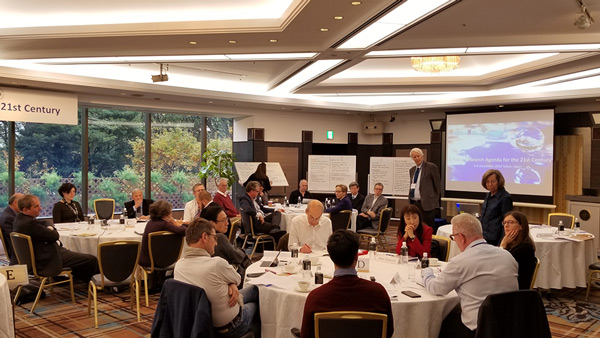International Workshop: A Peace Research Agenda for the 21st Century
December 06 - 08, 2019
Tokyo, Japan

What is the future agenda for peace research in the 2020s? Does peace research still have a distinct identity? What are the norms and values that peace research institutes espouse and can they influence practice in the face of the global challenges we face? A meeting of representatives of 22 of the world’s major peace research institutes, which was convened by the Toda Peace Institute in Tokyo from 6-8 December 2019, addressed these questions.
Background papers written by Kevin Avruch (S-CAR, George Mason University), Keith Krause (The Graduate Institute, Geneva) and Herbert Wulf (BICC) identified the key themes for the workshop:
- Does the field have a centre, and if so, what is it?
- Has peace research become too close to policy-makers, losing its critical and normative edge?
- Is it too wedded to a theory of change in which top-down policymakers are expected to take up findings drawn from aggregated, decontextualised quantitative analyses?
- Is the field to be conceived as research for peace or research about peace? If the latter, is the conceptualisation of peace encapsulated in the idea of ‘positive peace’ still persuasive?
- Do peace researchers agree on what they mean by peace?
- Do practitioners engaged in peacebuilding share the same understanding of the field as researchers? If not, how is it possible to overcome the research-practice gap?

The meeting mapped out a new agenda for peace research, based on the main challenges which face the field. These include (1) climate change (2) populism, nationalism, authoritarianism and threats from social media and (3) new emerging technologies with security implications, including cyber, AI and autonomous weapons. The workshop identified the potential for collaborative partnerships between the peace research institutes in these areas. It also identified new research directions on gender and violence and in arms control. The workshop explored strategies for better integrating research and practice, and outlined elements of a Code of Conduct for Peace Research institutes.